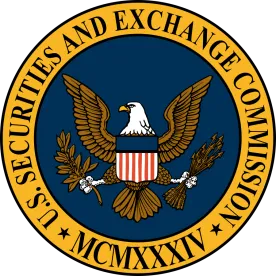On Monday, the Supreme Court placed significant limits on the Securities and Exchange Commission’s (“SEC”) ability to seek disgorgement, a powerful tool that often was used more like a penalty than an equitable remedy. The Supreme Court held the SEC may only seek disgorgement of ill-gotten gains that do not exceed a wrongdoer’s net profits and are awarded for victims under 15 U.S.C. §78u(d)(5)’s provision of equitable relief. This opinion reaffirms the SEC’s power to seek disgorgement of ill-gotten gains through civil actions as equitable relief, eliminating any doubt created by its prior opinion in Kokesh v. SEC. However, the Supreme Court left a few key questions for lower courts to decide, such as what may be considered legitimate expenses and deducted from a disgorgement award, and whether the Government can retain the funds disgorged by the defendants. The resolution of these issues may provide additional relief to future defendants in SEC enforcement cases.
In Liu v. SEC, 591 U.S. ____ (2020), petitioners Charles Liu and Xin Wang solicited foreign nationals to invest in the construction of a cancer-treatment center under the EB-5 Immigrant Investor Program, but misappropriated nearly $20 million of the funds in violation of the petitioners’ private offering memorandum. The SEC sought disgorgement of the full amount raised by investors, less roughly $200,000 remaining in the corporate accounts for the project. The district court found the petitioners liable for the full amount sought. The Ninth Circuit affirmed, allowing the SEC to disgorge “the entire amount raised less the money paid back to the investors.” Holding that §78u(d)(5) permits, as equitable relief, a disgorgement award that does not exceed a wrongdoer’s net profits and is awarded for victims, the Supreme Court vacated and remanded to the Ninth Circuit to ensure that legitimate business expenses were deducted from the disgorgement award.
The petitioners’ argument relied heavily on the Supreme Court’s opinion in Kokesh v. SEC, 137 S. Ct. 1635 (2017). In Kokesh, the Supreme Court held that SEC disgorgement was a penalty for purposes of the statute of limitations under 28 U.S.C. §2462. While the Court in Kokesh refused to decide whether the SEC had authority to seek disgorgement in civil suits, some predicted that Kokesh would eventually limit or possibly eliminate the SEC’s disgorgement authority. The Liu petitioners argued that, under Kokesh, disgorgement was necessarily a penalty and thus not a relief available at equity. However, the Court rejected this argument, noting that Kokesh did not limit the SEC’s ability to seek disgorgement limited to net gains.
Petitioners also argued that their disgorgement award was unlawful because it failed to return funds to victims, imposed joint-and-several liability, and declined to deduct business expenses from the award. The Court declined to rule on these issues, but noted how they potentially conflicted with principles of equity, leaving the issues to resolution in lower courts. First, the Court noted that “profits-based remed[ies] must do more than simply benefit the public at large by virtue of depriving a wrongdoer of ill-gotten gains,” leaving open the issue of whether the SEC may deposit disgorgement funds with the Treasury rather than disbursing them directly to victims.
Second, while noting that joint-and-several liability when imposing disgorgement seemed “at odds” with common law principles requiring individual liability for wrongful profits, the Court suggested that joint-and-several liability may be appropriate where partners engaged in concerted wrongdoing. The Court specifically noted that the petitioners were married, each contributed to the scheme, and they failed to present evidence suggesting they did not share in the benefits of the scheme.
Finally, the Court held that “courts must deduct legitimate expenses before ordering disgorgement under §78u(d)(5).” However, the Court left to lower courts to decide how to determine which expenses were legitimate or part of the fraud. Specifically, the Court noted that petitioners used funds to pay for lease payments and cancer-treatment equipment, which may have had value independent from fueling the fraudulent scheme.
While this opinion reaffirms the SEC’s power to disgorge ill-gotten gains, it provides important protections for future defendants. It clearly limits the SEC’s power to disgorgement of net profits, rather than the total amount raised. This gives defendants significant relief in deducting legitimate expenses, which businesses will incur except in the most extreme cases of fraud. The Court also left room for future debate over which expenses are legitimate and may be deducted from a disgorgement award. Future litigants will fight hard over what expenses are legitimate to minimize the total size of a disgorgement award. Finally, it leaves open whether the SEC may deposit disgorgement funds with the Treasury, rather than disbursing them directly to victims, an issue whose ultimate resolution could well affect the enthusiasm of the SEC for such civil suits. It remains to be seen how lower courts will decide these issues.



 />i
/>i

